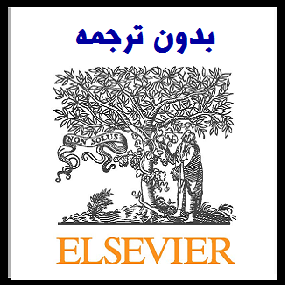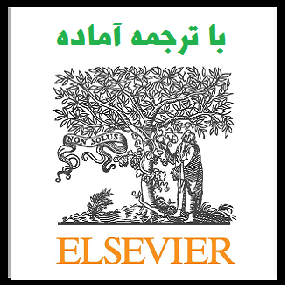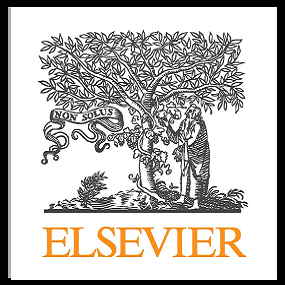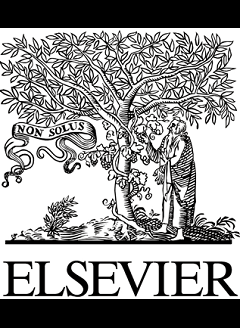دانلود رایگان مقاله اشتراک یک حسابرس شبکه ای در شرکتهای وابسته به گروه بر کیفیت حسابرسی – سال 2020


مشخصات مقاله:
عنوان فارسی مقاله:
آیا اشتراک یک حسابرس شبکه ای در شرکتهای وابسته به گروه بر کیفیت حسابرسی تأثیر دارد؟
عنوان انگلیسی مقاله:
Does sharing the same network auditor in group affiliated firms affect audit quality?
کلمات کلیدی مقاله:
ممیزی گروهی، حسابرسان غیرمجاز، تقلب، کیفیت حسابرسی
مناسب برای رشته های دانشگاهی زیر:
حسابداری
مناسب برای گرایش های دانشگاهی زیر:
حسابرسی
وضعیت مقاله انگلیسی و ترجمه:
مقاله انگلیسی را میتوانید به صورت رایگان با فرمت PDF با کلیک بر روی دکمه آبی، دانلود نمایید. برای ثبت سفارش ترجمه نیز روی دکلمه قرمز رنگ کلیک نمایید. سفارش ترجمه نیازمند زمان بوده و ترجمه این مقاله آماده نمیباشد و پس از اتمام ترجمه، فایل ورد تایپ شده قابل دانلود خواهد بود.
فهرست مطالب:
Abstract
Keywords
1. Introduction
2. Hypothesis development
3. Research design
3.1. Sample selection
3.2. Empirical model
3.3. Measurement of the variables
3.3.1. Dependent variables
3.3.2. Independent variable
3.3.3. Moderating variables
4. Results
4.1. Descriptive statistics and hypothesis testing
4.2. Two-stage analysis
4.3. The influence of the extent of sharing the same network auditor on audit quality
4.4. Does it matter if the shared network auditor is the parent client firm’s auditor?
4.5. Auditor switch analysis
4.6. Context specific analyses and audit quality
4.6.1. Audit tenure
4.6.2. Industry specialists
4.6.3. Group homogeneity
4.6.4. Geographical dispersion between parent and subsidiaries
4.6.5. Control intensity
4.6.6. Clients of Top 10 audit firms
5. Conclusion
Acknowledgements
Appendix A.
Appendix B.
Appendix C.
Appendix D. Supplementary material
Research Data
References
قسمتی از مقاله انگلیسی:
1. Introduction
Our first objective in this study is to provide evidence on whether sharing the same network audit firm rather than using unaffiliated audit firms for the parent and/or subsidiaries of a business group audit is associated with audit quality for Chinese listed firms. Second, we identify different contexts when using the same network or unaffiliated audit firms for parents and/or subsidiaries of business groups moderates audit quality. Group affiliated firms tend to be large and economically important relative to unaffiliated (stand-alone) firms (Khanna and Yafeh, 2007; Shi et al., 2015).1 There is little research on the role of auditing in group affiliated firms despite the importance of group affiliated firms and the extensive prior research on group affiliated firms in economics and finance literature (see Coase, 1960; Williamson, 1985; Claessens et al., 2006). Prior research finds that group affiliated firms exacerbate agency problems between large controlling shareholders and minority owners. That is, complex ownership structures and opaque intra-group transactions can be used by majority owners to generate private benefits, including tunneling at the expense of minority owners especially in countries with weak investor protection mechanisms (La Porta et al., 1999; Wolfenzon, 1999; Bae et al., 2002; Bertrand et al., 2002; La Porta et al., 2002; Claessens et al., 2006). Further, insider controlled firms are associated with more earnings management than non-insider controlled firms in countries with weak investor protection (Gopalan and Jayaraman, 2012). This raises questions regarding the skill of auditors in maintaining audit quality for group affiliated firms. Sharing the same network auditor occurs when the parent and/or subsidiaries in group affiliated firms engage the same network auditor. China provides an ideal context to study this question. First, most of the publicly traded firms in China are group affiliated firms. Second, competition in the Chinese audit market is strong (Wang et al., 2008; Yang, 2013; Ke et al., 2015; Chen et al., 2016). Third, investor protection in China is weak (DeFond et al., 2000; Chen et al., 2001; Chan et al., 2006; Djankov et al., 2008)



